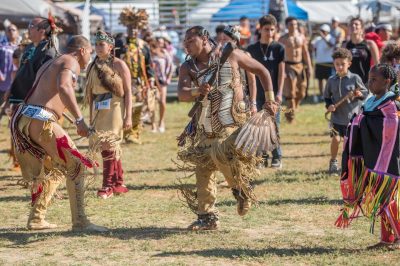 Late on June 5th, a federal judge ruled in favor of the Mashpee Wampanoag Tribe in the nation’s attempt to keep the control of 321 acres of reservation land in Taunton and Mashpee. According to US District Judge Paul Friedman, a 2018 declaration of the administration of President Trump that the Native American tribe does not qualify as an “Indian” tribe under the Indian Reorganization Act violated the law.
Late on June 5th, a federal judge ruled in favor of the Mashpee Wampanoag Tribe in the nation’s attempt to keep the control of 321 acres of reservation land in Taunton and Mashpee. According to US District Judge Paul Friedman, a 2018 declaration of the administration of President Trump that the Native American tribe does not qualify as an “Indian” tribe under the Indian Reorganization Act violated the law.
The judge decided to rule in favor of the tribe’s move seeking summary judgment on the case in which the Mashpee Wampanoag Tribe claimed that the Interior Secretary David Bernhardt had not considered previously submitted factual evidence that should have made it clear that the Tribe was eligible to put the land in trust. The matter was then remanded for reconsideration to the Department of the Interior.
The tribe gladly welcomed the Federal Judge’s ruling, saying that he had righted what would have otherwise been a significant injustice. Cedric Cromwell, the Chairman of the Tribal Council, explained that the Department of Interior would now have to draft a positive decision for the tribal land as instructed by the ruling.
The status of the land has been subject to controversy for years. After the tribe got federally recognized as such in 2007, the administration of President Obama took the land into trust for the Mashpee Wampanoag tribe at the beginning of 2016. However, President Trump’s administration has fought that designation at the same time when the Native American tribe has worked to establish a $1-billion casino on its trust land in Taunton.
Court’s Ruling Taken as Victory for the Tribe
 In March 2020, the Interior Secretary Bernhardt issued an order aimed at taking out the trust status of the tribe’s land that has put 321 acres of reservation land in Taunton and Mashpee in the tribe’s sovereignty. Furthermore, the Mashpee Wampanoag Tribe is challenging another case challenging its land in trust status.
In March 2020, the Interior Secretary Bernhardt issued an order aimed at taking out the trust status of the tribe’s land that has put 321 acres of reservation land in Taunton and Mashpee in the tribe’s sovereignty. Furthermore, the Mashpee Wampanoag Tribe is challenging another case challenging its land in trust status.
Apart from the above-mentioned case that is taking place at the US Court of Appeals for the First Circuit, US Representative William Keating has pushed federal legislation that seeks to use the Congress to reaffirm the Interior Department’s 2015 decision under which the land in question had to be taken into trust for the tribe. Now, Representative Keating described the judge’s ruling as a victory for the tribe.
As mentioned above, the issue must be returned to the Department of the Interior. A year ago, in May 2019, the US House of Representatives approved a Reservation Reaffirmation Act regarding the Mashpee Wampanoag Tribe with 275 to 146 votes. The bill was referred to the US Senate that same month and has made no further progress since then.
The fate of the Mashpee Wampanoag tribe’s land in trust could also seriously affect the commercial casino industry of the state. The thing is that an operating license for a commercial casino in Region C, which includes Plymouth, Bristol, Dukes, Barnstable and Nantucket counties, could still be issued by the Massachusetts Gaming Commission. However, there has been some concern that large commercial casino operators might not be ready to make an investment of no less than $500 million in a gambling venue project that would be forced to compete with a tribal casino in operation in close proximity. On the other hand, the state of Massachusetts would not receive any tax revenue from the tribal casino in case the local gambling regulator decides to issue a Region C commercial casino license.